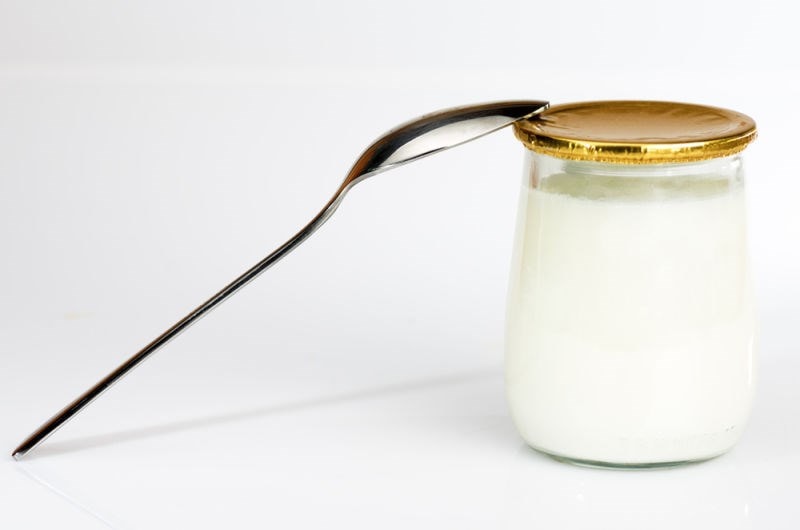Could a yoghurt a day keep stress away?
A new study has come out, suggesting that taking a probiotic drink containing the strain Lactobacillus casei Shirota can reduce stress.

A recent study1 aimed to examine the effects of Lactobacillus casei strain Shirota (the bacterial strain in the Yakult drink) on gut-brain interactions under stressful conditions. The study took 23 medical students 8 weeks prior to taking exams and gave them Yakult to drink, there was also a placebo group who just drank a non-probiotic, but similar drink. Louji Miyazaki, phD, director of the Food Research Department of Yakult Central Institute, Tokyo, Japan, said their findings were that the probiotic strain, Lactobacillus casei strain Shirota ‘can relieve many aspects of the stress response, especially gastrointestinal dysfunction.’
Miyazaki said that the study demonstrated that daily consumption of the probiotic milk reduced gastrointestinal pain and dysfunction, as well as the feeling of being stressed out. It also dampened the rise in salivary cortisol which is a stress indicator. Dr Emeran Mayer, director, Oppenheimer Center for Neurobiology or Stress, said the study was certainly a step forward but the results were hampered by the number of participants being so few. He also suggested that achieving data for behavioural results normally required hundreds of participants, as such symptoms are more variable than something biological. Critics of the findings are also pointing out that Yakult sponsored the study.
The research is published in Applied and Environmental Microbiology, a journal of the American Society for Microbiology.
It's still early days for probiotics and their research - even in more understood areas like digestion, the research into probiotics (and what types, doses, strengths etc) is still growing. But preliminary research into probiotics for stress is promising. It certainly seems that there's a strong link between our gut bacteria and our levels of stress, anxiety and depression. There is evidence beginning to stack up, on various strains to suggest that probiotics could help with the symptoms of stress. For example, the strains Lactobacillus Rosell-52 and Bifidobacterium Rosell-175, have been shown in a French trial2 to alleviate stress and anxiety. Another recent study3 performed at the APC Microbiome Institute at the University College Cork, reported that the strain Bifidobacterium longum 1714 reduced daily stress.
Psychobiotics?
According to the 'Society of Biological Psychiatry' the term ‘psychobiotics’ is defined as a ‘live organism that, when ingested in adequate amounts, produces a health benefit in patients suffering from psychiatric illness’. You can read more about how it is believed these tiny microscopic organisms can exert an effect on our mood in a fascinating article written by nutritional therapist Kathy here, in the Probiotics Learning Lab.
Personally, I feel it is very difficult to get completely accurate scientific data from a human being with all our lifestyle, dietary, genetic differences, not to mention our variation in stress coping strategy. It brings us back to the point that everyone is unique, and in fact our microbiome is unique to each of us too. Again it’s about finding the specific strains that help us with our particular needs. Maybe anecdotal evidence is as strong a result as a trial.
Whatever the criticisms or doubts are, we cannot deny that there is a growing collection of studies showing links between stress, anxiety, depression and gut bacteria. Stress clearly has an effect on our gut function, and healthy gut function is fast being shown to have a positive effect on our mood – read more in our article by nutritional therapist Kerry Couple of the year: Gut and Brain, also over in the Probiotics Learning Lab.
References
- Akito Kato-Kataoka et al. Fermented milk containing strain Shirota preserves the diversity of the gut microbiota and relieves abdominal dysfunction in healthy medical students exposed to academic stress , Applied and Environmental Microbiology (2016). DOI: 10.1128/AEM.04134-15
- Messaoudi, M. et al. (2011) 'Assessment of psychotropic-like properties of a probiotic formulation (Lactobacillus helveticus R0052 and Bifidobacterium longum R0175) in rats and human subjects'. Br J Nutr, 105(5): 755-64
- Allen, A. et al. 'Bifidobacterium longum 1714: A psychobiotic that modulates brain activity, the stress response and neurocognitive performance in healthy volunteers'. UCC.
Popular Articles
View all Mental Health articles-
Mental Health13 Feb 2024
-
Mental Health26 Mar 2025


